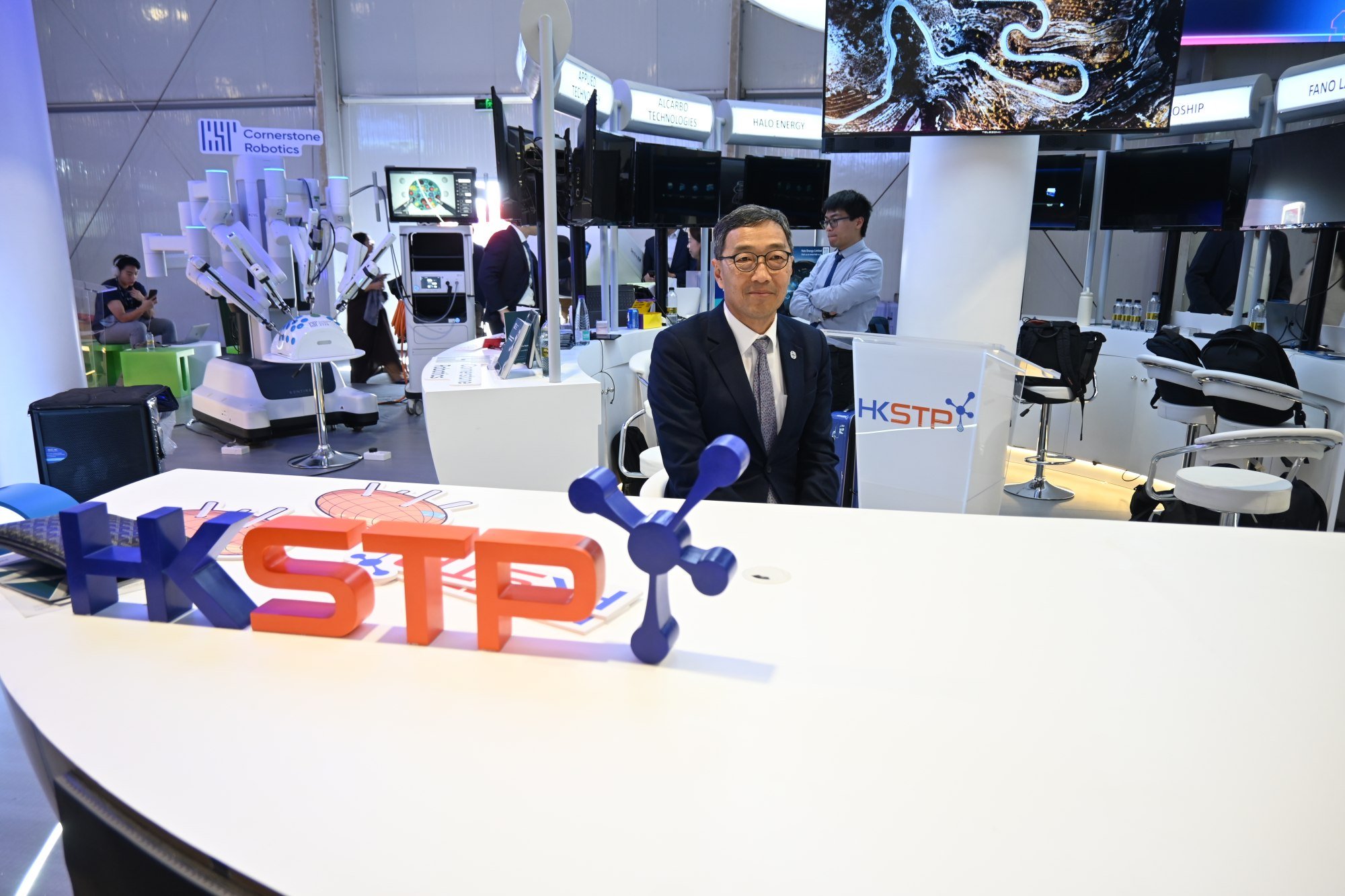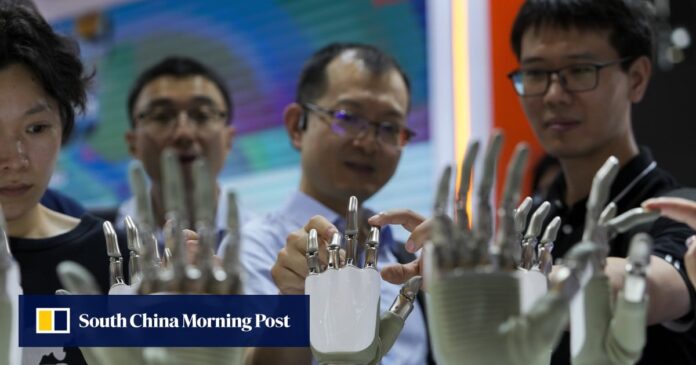Artificial intelligence (AI) start-ups from Hong Kong grabbed some of the spotlight at the three-day World Artificial Intelligence Conference (WAIC) in Shanghai this week, as they showcased an array of products and services to underscore the city’s ambitions to become an innovation hub.
Cyberport, Hong Kong Science and Technology Parks (HKSTP), and the Hong Kong Trade Development Council, brought 15 companies to the AI conference this year, compared to only eight last year, amid the city’s efforts to transform into a tech hub.
The displays included large language models, Internet-of-Things systems, AI image generation, industrial quality-control solutions, and AI-powered rescue drones. The Hong Kong Industrial Artificial Intelligence & Robotics Centre, known as FLAIR and established by the Hong Kong Productivity Council, presenting its R&D achievements and user cases.
“Despite its small geographical size, Hong Kong is an international city that can attract talent and access global markets,” said HKSTP CEO Albert Wong Hak-keung at WAIC. “Additionally, Hong Kong has strong fundamental research capabilities, underpinned by its top universities.”
In August 2023, Hong Kong Chief Executive John Lee Ka-chiu committed to establishing a cross-boundary science and technology hub by 2035, emphasising Hong Kong’s role as a bridge between the mainland and the rest of the world. As part of the efforts, Financial Secretary Paul Chan Mo-po announced a series of innovation and technology initiatives backed by HK$24 billion (US$3.07 billion) in the 2024-2025 budget.
“Hong Kong has been a traditional financial centre for a long time, which means easier fundraising for entrepreneurs, combined with the support of the Hong Kong SAR government,” said Lu Jian, chief representative of the Hong Kong Trade Development Council for eastern and central China. He also noted that science parks like HKSTP and Cyberport support thousands of start-ups, creating a positive “agglomeration effect” that helps them match up with potential partners and clients.
Commercialising AI technology has been a pain point for many start-ups, which burn cash during the R&D phase. “The Hong Kong Productivity Council has served [small and medium enterprises] for decades, understanding their needs and cost-effectiveness concerns. Therefore, our projects focus on real application scenarios from the outset to ensure better landing,” FLAIR CEO Edmond Lai Shiao-bun told the South China Morning Post.

Discussing the future of AI technology, HKSTP CEO Wong pointed out three key areas: the technology itself, its accessibility, and regulation. “We aim to establish a platform for AI start-ups in Hong Kong, supporting their exploration in various application fields.”
Computing power is increasingly crucial in the global AI race. According to Wong, HKSTP’s computing centre is expected to be operational by August. “Hong Kong has access to the best chips and infrastructure, and we should build more facilities to support our companies,” he said.
Cyberport, which received HK$3 billion from the city government, is developing an AI supercomputing centre, which it said is expected to deliver computing power of 3,000 petaFLOPS when fully operational, equivalent to processing nearly 10 billion images in one hour.
Among the other exhibitors at WAIC were automation solution provider YouToo Robot, AI-powered rescue drone start-up LifeSparrow, local LLM start-up Stellaris AI, data and indoor positioning platform SagaDigits, commercial robot maker RoboCore, AI SaaS start-up Pubrio, and intelligent assembly line inspection company MotherApp.

